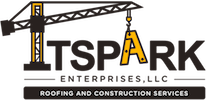As the world continues to move towards more sustainable ways of living, construction efforts have changed. Residential and commercial buildings together account for 40 percent of total energy in the US. As a result, ZNE (Zero Net Energy) homes have risen in popularity over the years. A ZNE home can produce enough energy through renewable energy sources built into the house to match the home’s amount of energy in non-renewable energy over a year.
In addition to the sustainable advantages, there is also a considerable financial benefit. It is estimated that the average homeowner spends more than $1200 a year on non-renewable energy sources. ZNE homes can keep your air conditioning and heating system from working as hard because the air inside your home is trapped with insulation. A ZNE home would be a large investment at first. However, it would allow for no more monthly bills in the future that become very costly during the winter and summer months. ZNE homes also have features that extend the home’s life, such as double-wall construction to prevent air, allergens, and moisture both from entering and exiting the home.
A great way to push towards sustainability in the home is through SPF (spray polyurethane foam insulation). SPF is a two-part insulation product made by combining resin and iso. The two liquids are mixed and travel up a heated hose into a spray gun where it is sprayed inside a home or building walls. The foam expands rapidly once placed onto a surface until the desired area is filled. It is estimated that the average home loses 40 percent of air through walls, cracks, gaps, and lack of insulation. Spray foam is an alternative to traditional insulation that works wonders in minimizing air infiltration with a single product. Unlike other insulation products such as fiberglass and cellulose, spray foam will prevent moisture from entering the home to reduce the risk of mold and mildew. It also prevents outside noise and pest infestations.
As our planet continuously becomes at risk of enduring the consequences of non-renewable energy sources, homeowners must begin to consider making sustainable changes to their homes. We recommend sooner rather than later. Many states are already creating laws that will require homeowners to make construction efforts towards zero net energy. Additionally, spray foam and other sustainable choices will extend the durability of your home as well as increase its value. The first investment will be large, but it is essential to consider the many benefits and financial returns that will come about from it.
We hope this made you consider eco-friendly construction efforts for your home or commercial building. If you are willing to get started with your sustainable construction efforts, our staff at TSpark is happy to help.

